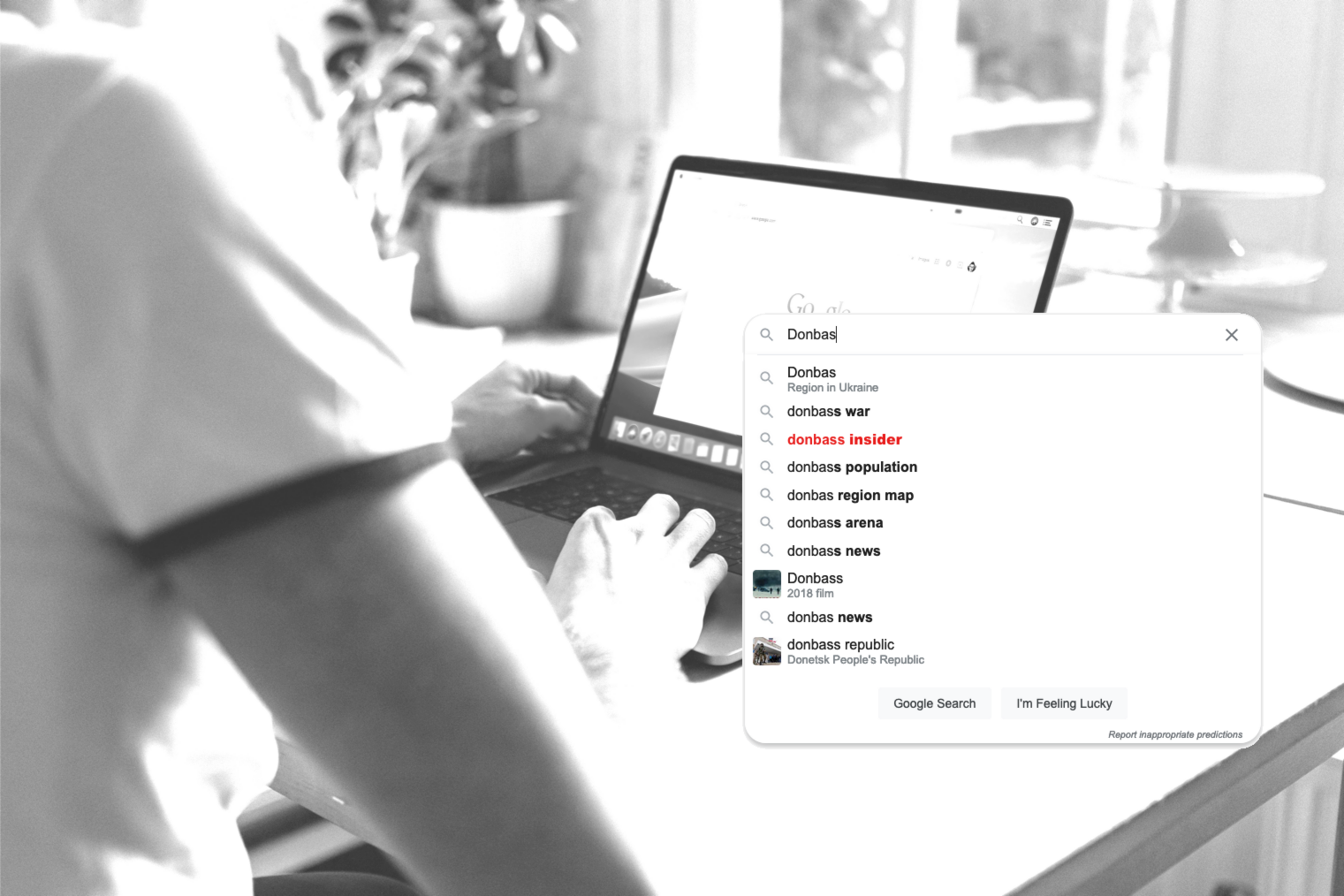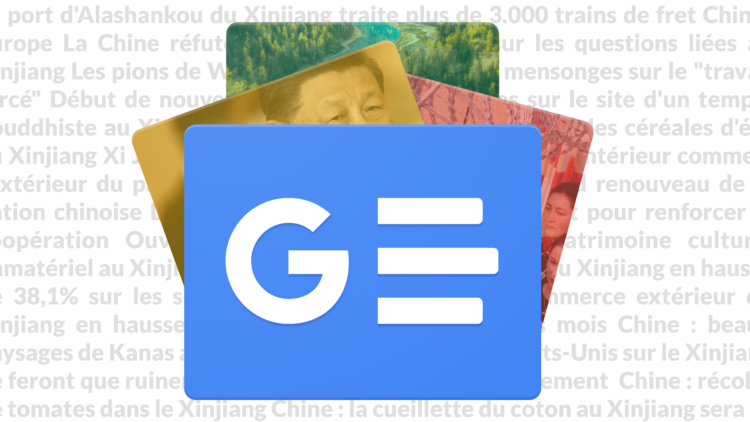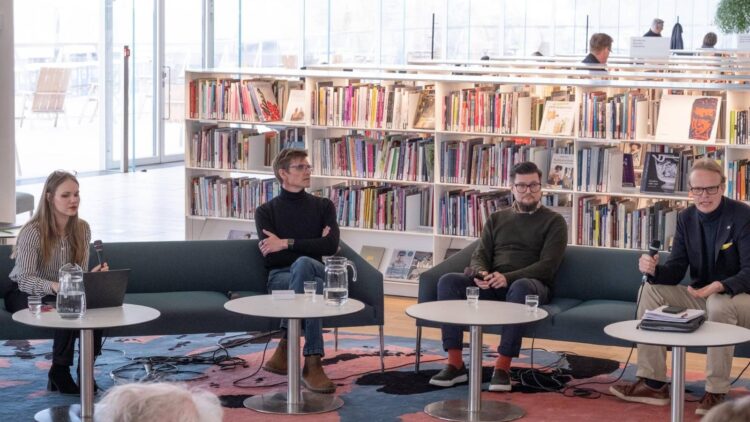Disinformation on Donbas is only a Google autocomplete away
An investigation to demonstrate how French speaking Belgians were hinted at searching for dubious sources when looking up the word “Donbass” in the Google search bar.
Read the full investigation
Key findings
- During 6 months, Google’s prediction algorithm predicted a pro-kremlin outlet, Donbass Insider, to Belgian users looking for information about Donbass;
- Not only it predicted Donbass Insider website, but also its social media channel where they are or were actively posting content about the situation in Donbas;
- Aside from Donbass Insider, Google search prediction oriented users among dubious content or sources on the situation in Donbas, such as Anne Laure Bonnel or Christelle Néant;
- Christelle Néant worked as a reporter for the pro-Russian news agency DONI in 2016, then founded Donbass Insider;
- She seems to have been in contact with French fighters established in Donbass, fighting for the pro-Russian forces;
- Christelle Néant has been active for several years in the media landscape, thus participating in the occupation of the media space by Russian propaganda by using her skills as a former community manager. She can also count on a wide network of followers to spread her content and Kremlin-friendly rhetoric.
Context: an increasing interest for Donbas
Crossover found that Google autocomplete predictions displayed almost systematically the name of a Pro-Kremlin outlet when French speaking Belgians were looking up the word “Donbass” on Google Search. Other predictions for the same search term showed the names of known Pro-Kremlin individuals.
On 24 February, Vladimir Putin declared a “special military operation” in Ukraine. All eyes on Ukraine, Europe watched how Russia started to invade the country. New terms began to be pronounced by journalists, terms a lot of people have never heard of before: Khrakiv, Azov, denazify, Boutcha, Donbass…
What is the reflex when someone hears a word he doesn’t know anything about? To Google it. According to Google Trends data, Belgian users’ interest dramatically increased for the term “Donbass”, causing Google searches for this word to skyrocket.
Belgian Google users searching for the word “Donbass” would see “Insider” as an autocomplete prediction
When a user types a word in the Google search box, the search prediction feature will try to guess what the user has in mind by predicting the rest of the query, using an algorithm. When typing, a prediction box shows up, populated with Google’s guesses for possible search queries. This system is called Google Autocomplete Prediction.
Between February and August 2022, when Belgian users were querying information about Donbass, Google Autocomplete Prediction would complete their search with dubious terms.
Our research has proven that the search “Donbass”‘ was associated with “Insider”, “Anne Laure Bonnel”, “Insider Christelle” among other predictions. By showing “Insider” to its users, Google might have led them to Donbass Insider, a pro-Kremlin propaganda outlet accused of spreading disinformation on the war in Ukraine and particularly on the conflict in Donbas. Sometimes, its associated social media channels, like Youtube or Odysee, where they produce the same type of content appeared in the predictions.
Google also predicted “Anne Laure Bonnel”, which refers to a “French journalist who gained visibility after she presented a pro-Russian analysis of the Donbass conflict, including some misleading information.” according to ISD.
Lastly, the prediction “Christelle” leads to Christelle Néant, founder of Donbass Insider who can count on a network of followers to spread her content and Kremlin-friendly rhetoric.
Google was contacted and invited to provide an explanation following CrossOver’s findings but didn’t comment on the fact that the company might have exposed citizens to Pro-Kremlin outlets in the context of the war in Ukraine.

![[INTERVIEW] Apache](https://crossover.social/wp-content/uploads/2021/12/Apache-750x422.png)


